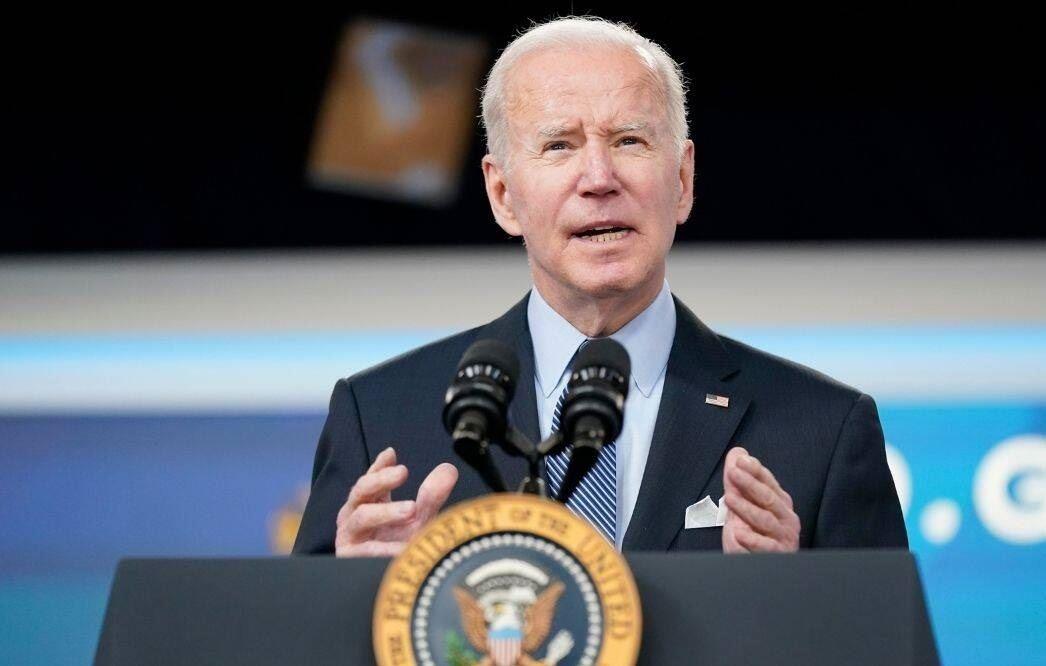(MENAFN- Trend News Agency) A burst of deadly violence between U.S. forces and suspected
Iranian proxies in Syria has reignited long smoldering tensions
between Washington and Tehran, with the Biden administration
warning Friday that while it wants to avoid a wider confrontation,
indiscriminate attacks on U.S. troops would not go unpunished,
trend reports
citing the washington post .
“The United State does not - emphasize does not - seek conflict
with Iran,” President Biden, speaking in Ottawa alongside Canadian
Prime Minister Justin Trudeau, said after U.S. warplanes carried
out retaliatory airstrikes for the death of an American contractor.
But be prepared for us to act forcefully to protect our people.
That's exactly what happened last night.”
At the Pentagon, Brig. Gen. Patrick Ryder, a spokesman, told
reporters that the operation, conducted overnight at Biden's
direction, was intended“to send a very clear message that we will
take the protection of our personnel seriously, and that we will
respond quickly and decisively if they are threatened.”
The bloodshed began Thursday when a self-detonating drone struck
a U.S. facility in northeast Syria. Beyond the contractor's death,
five U.S. troops and a second contractor were wounded in the
attack, which Biden administration officials promptly linked to
militias trained and armed by Tehran.
American F-15 fighter jets carried out two airstrikes in
response, Ryder said. The jets targeted facilities associated with
the Islamic Revolutionary Guard Corps, an elite Iranian force that,
via its network of proxies, has targeted U.S. troops in the Middle
East on and off for years.
Hours later, Ryder said, 10 rockets were launched at Green
Village, a U.S. military position about 100 miles south in Syria.
The Pentagon also linked those attacks to militias backed by Iran.
It said there were no injuries to U.S. or coalition personnel, and
no damage to U.S. equipment.
The violence underscored what Gen. Michael“Erik” Kurilla, the
top U.S. military officer overseeing operations in the Middle East,
described on Capitol Hill this week as an escalating series of
incidents targeting U.S. personnel in the region by groups with
ties to Iran. He told members of the House Armed Services Committee
that Iranian-backed forces had launched 78 such attacks since
January 2021, a higher number than previously disclosed.
Thursday's drone attack occurred outside the northeastern city
of Hasakah, where thousands of Islamic State fighters have been
detained following the collapse of their self-declared caliphate
over the last decade. Some of the wounded were rushed to a medical
facility in Iraq, officials said. All were in stable condition
early Friday.
None of the victims has been identified. The New York Times
reported Friday that the facility's air defenses were not fully
operational when the attack occurred. Ryder said that the incident
is under review.
The Deir Ezzor 24 activist group, which has sources in the area
where airstrikes occurred, said that four members of what it
described as Iranian-linked militias were killed near the town of
Deir al-Zour, and that others, including Iraqi citizens, were
wounded. The Syrian Observatory for Human Rights, a British group
that documents violence in the region, said 11 people died in the
airstrikes. Ryder said Friday that the Pentagon continues to assess
casualties resulting from the operation.
Biden consulted with his national security team before
authorizing the airstrikes, White House spokesman John Kirby told
CNN on Friday morning. The president decided to act“very, very
shortly” after receiving recommendations from senior defense
leaders and the intelligence community, Kirby said.
Kirby characterized the region where Thursday's attack occurred
as“dangerous,” and said American personnel assigned there are
focused principally on ensuring“the enduring the defeat” of the
Islamic State.“We've been very clear with the Iranians and with
our partners about how serious the mission that we're doing in
Syria is and how much we're going to protect that mission,” Kirby
said.“Iran should not be involved in supporting these attacks on
our facilities and on our people.”
About 900 American personnel, bolstered by hundreds of
contractors, are based in Syria where they are partnered with the
Syrian Democratic Forces, a Kurdish-led group. Another 2,500 U.S.
troops are located across the border in Iraq.
Kurilla told lawmakers that Tehran now possesses the largest and
most diverse missile arsenal in the Middle East, and the largest
and most capable unmanned aerial vehicle force in the region.
“The advancement of Iranian military capabilities over the past
40 years is unparalleled in the region; in fact, the Islamic
Revolutionary Guard Corps of today is unrecognizable from just five
years ago,” he said in his House testimony Thursday.
In a statement released after the airstrikes, the general said
that the United States has“scalable options” should tensions with
Iran or it proxy forces escalate further.
Thursday's violence marks the latest flash point as Iran and its
supporters work to force the United States from the region.
In 2018, President Donald Trump's decision to withdraw the
United States from a landmark nuclear deal with Tehran sparked
rounds of violence in Iraq, as well.
When Iranian-linked militias fired volleys of rockets into the
U.S. Embassy in Baghdad and targeted coalition bases around the
country, killing and wounding Iraqi and foreign troops, Trump
responded by ordering the killing of a leading Iranian general,
Qasem Soleimani, and authorizing airstrikes on militia groups in
Iraq and Syria.
Iran retaliated by firing ballistic missiles at U.S. military
positions, with 11 detonating at Ain al-Asad Air Base in western
Iraq. The explosions destroyed aircraft and buildings and left
craters on the base, with more than 100 U.S. troops suffering
traumatic brain injuries.
Tensions have ebbed in recent months, but the attacks remain a
significant concern for the U.S.-led coalition.




















Comments
No comment